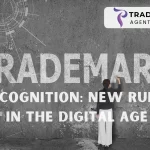Trademark Twins: Shared Sovereignty in India?
As we all know that the Trademarks registration is governed under the Trade Marks Act, 1999 read with the Trademark Application Rules, as amended from time to time. Normally, we see that no similar/identical trademarks are registered or allowed to be registered in the names of two different entities and the Trade Marks Act has provided the number of safeguards against the registration of two similar trademarks in the names of different persons under the same class.
However, recently in the decided case law of KSRTC Vs KSRTC, the Madras High Court dismissed the petition filed by Kerala State Road Transport Corporation. The Petition was filed against Karnataka State Roard Transport Corporation challenging the usage of the trademark “KSRTC” by Karnataka State Roard Transport Corporation. Kerala RTC claimed that only they were authorised to use the mark “KSRTC”. The case was filed in the year 2021 and it was pending before the IPAB, later on the case was transferred to the High Court of Madras at Chennai and after a period of seven years, on 12th December, 2023, the matter was finally decided in the favour of Karnataka SRTC. The Court held that as per Section 12 of the Trade Marks Act, 1999, the Registrar of Trademarks is entitled to allow the registration of two similar trademarks in respect of same / similar goods / services in case of honest concurrent use or other special circumstances.
The Court held that Karnataka RTC has been using the affordable trademark services since the year 1973 and it got its trademark registered in the year 2013. Thus the trademark is in concurrent use over a material length of time. Both entities have been using the mark “KSRTC” for decades.
Furthermore Karnataka SRTC contended that Kerala SRTC was very well aware of the use of the trade mark by the Karnataka SRTC for the last 42 years, hence, they were not entitled to apply for a declaration that the registration of the later trade mark is invalid since they acquiesced the usage of the mark by Karnataka SRTC. The Court held that as per Section 33 of the Trade Marks Act, 1999, Kerala SRTC had acquiesced the usage of the mark by Karnataka SRTC.
Thus, as per the decided case, under the provisions of Section 12 and Section 33 of the Trademarks Act, 1999, two exactly same trademarks, belonging to different entities can be registered for same goods / services under the same class.
Now, we need to understand what these sections say and how these are relevant:-
Section 12:- Registration in the case of honest concurrent use, etc.—In the case of honest concurrent use or of other special circumstances which in the opinion of the Registrar, make it proper so to do, he may permit the registration by more than one proprietor of the trade marks which are identical or similar (whether any such trade mark is already registered or not) in respect of the same or similar goods or services, subject to such conditions and limitations, if any, as the Registrar may think fit to impose.
Thus, as per Section 12, in case, there is honest concurrent use of the mark or there are special circumstances, the Registrar has the authority to allow the registration of two identical marks in respect of identical goods, like in the above stated case. In the decided case, the Judge quoted that both the criteria are fulfilled i.e. honest concurrent use and the existence of special circumstances, which justify such kind of registrations.
Section 33:- Effect of acquiescence:-
(1) Where the proprietor of an earlier trade mark has acquiesced for a continuous period of five years in the use of a registered trade mark, being aware of that use, he shall no longer be entitled on the basis of that earlier trade mark–
(a) to apply for a declaration that the registration of the later trade mark is invalid, or
(b) to oppose the use of the later trade mark in relation to the goods or services in relation to which it has been so used, unless the registration of the later trade mark was not applied in good faith.
(2) Where sub-section (1) applies, the proprietor of the later trade mark is not entitled to oppose the use of the earlier trade mark, or as the case may be, the exploitation of the earlier right, notwithstanding that the earlier trade mark may no longer be invoked against his later trade mark.
Thus as per Section 33 of the Trade Marks Act, 1999, in case the proprietor of an earlier mark has not raised any issues on the usage of the same mark by another entity, for a continuous time frame of 5 years, then he loses all his rights of opposition, rectification or declaring that the later mark is invalid. The law therefore requires all the registered proprietors to be vigilant / cautioned, towards the misuse of their registered trade mark by some other entity and to timely take action against such entity to avoid such kind of similar trademark registrations.
Conclusion:- Thus from the decided case law and the provisions of the Trade Marks Act, 1999, it is evident that one can get the registration of his / her trademark / logo / brand under a class, inspite of the fact, that somebody else is already the owner of the same mark, under the same relevant class.
In today’s competitive era, where business knows no boundaries, Trademark registration in Chandigarh and across India has become a necessity for sustenance, growth and excellence. Now, entities are known to consumers by their logos, brand names and taglines. Trademark Registration benefits the organizations initially in building their markets and later on, by generating huge revenues, once they are stated in their balance sheets as Assets. When you trademark your business, you are essentially protecting it from a third-party using it without your consent or authorization, and reaping benefits of your hard work. As your business grows, your uniqueness, whether it comes from minute details in your products or services, or in your logo, also begins to gain a lot of popularity.
The entities are expected to register their marks / brand names not only in India but globally by exercising International trademark Registration as well. In recent times, keeping in view the importance of International Trademark Registration, now the international trademark application can be filed by the concerned entities under the Madrid Protocol, sitting in India only, instead of approaching each and every country.
Now the next immediate question that comes to your mind is how to register our mark?
Brij Agnihotri and Associates, Company Secretaries, Registered Trademark Agents Services, Registered Valuers (SFA) are experts in legal matters corresponding to the corporate realm. They can offer you assistance as well as guidance and services such as that of company secretary, as well as in matters pertaining to company incorporation, LLP registration, apart from trademark registration. If you are looking for trademark agents for filing your trademarks / logo / brands, you must look no further. Their services are offered at a very feasible price which are in no way taxing or burdensome to your pocket, and solve your problem without extorting humongous sums of money from you. They help you get the ‘™’ symbol which stands for applied trademark or the ‘R’ symbol which shows that your product or services are registered. At Brij Agnihotri & Associates, quality services are assured and customers satisfaction is the priority.





